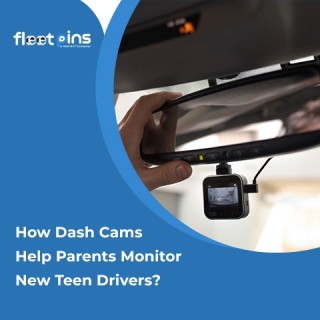- On 2024-09-26
How to Handle Unplugged Trackers: Ensure Seamless GPS Tracking and Security
GPS trackers are essential devices for monitoring vehicles in real time, managing fleets, and ensuring safety. They provide constant updates about a vehicle's location, speed, and driving behavior. However, unplugged trackers can cause interruptions in this continuous flow of data. This situation may lead to lost vehicle location data, reduced operational efficiency, and even potential security concerns. Handling unplugged trackers effectively requires understanding why it happens, what can be done to prevent it, and how to respond when it occurs.
Impact of an Unplugged GPS Tracker
When a GPS tracker becomes unplugged, the most immediate impact is the loss of location data. The tracker relies on the vehicle’s power to function, so when it is disconnected, the real-time tracking stops. In some cases, trackers have internal backup batteries that can keep them running for a limited time after being unplugged, but once these batteries are drained, tracking ceases entirely.
For businesses, this can cause several challenges. Delivery routes may go off schedule, and fleet managers may lose visibility over their vehicles, creating blind spots in logistical planning. Unplugged trackers can also result in vehicles being off the grid for hours or even days, leading to delays in responding to emergencies, thefts, or vehicle misuse. For private vehicle owners, unplugged trackers may mean losing sight of a valuable security device, leaving the car vulnerable in case of theft.
Common Reasons for Trackers Getting Unplugged
GPS trackers can become unplugged for a variety of reasons, both accidental and intentional. Understanding why trackers get unplugged can help address the problem effectively.
Accidental Disconnection:
Many GPS trackers are connected through the vehicle’s diagnostic port (OBD-II) or the cigarette lighter socket. If the tracker is not firmly connected, or if the vehicle experiences a lot of movement or vibrations, the tracker may come loose and disconnect. In older vehicles, wiring may become loose over time, increasing the chances of accidental unplugging.
Driver Interference:
In some cases, drivers may intentionally unplug the GPS tracker. They might do this due to privacy concerns, not wanting their location to be monitored, or to avoid tracking during unauthorized detours. This can be an issue in fleet management where drivers may want to take unscheduled breaks or use company vehicles for personal errands.
Faulty or Worn Wiring:
Over time, the wiring in a vehicle may degrade due to wear and tear, particularly in vehicles that are frequently in use. Poor maintenance of the electrical systems can result in loose connections, which can cause the GPS tracker to unplug intermittently.
Environmental Factors:
Extreme temperatures, vibrations from rough roads, or impacts can lead to the tracker becoming dislodged or unplugged. Vehicles exposed to these conditions on a regular basis are more prone to accidental disconnections.
You May Also Read: 10 Essential Features to Look for in a GPS Tracking Unit
Preventive Measures to Avoid Unplugging
Preventing a GPS tracker from being unplugged can save you from the disruptions that come with data loss. Here are some steps you can take to avoid this situation:
- Hardwiring the GPS Tracker
- Using Tamper-Proof Devices
- Regular Maintenance of the Vehicle’s Electrical System
- Educating Drivers and Personnel
Steps to Take When a Tracker is Unplugged
If your GPS tracker is unplugged, it's important to act quickly to restore connectivity and minimize the impact on operations. Here’s what you should do:
Check the Vehicle for Disconnection
The first step is to physically inspect the vehicle and the GPS tracker to identify the cause of the unplugging. Look at the connection points, wiring, and any mounting hardware to determine if the tracker was accidentally dislodged or if there are signs of intentional tampering.
Re-establish the Connection
If the disconnection was accidental, simply reconnect the GPS tracker to the vehicle’s power source. Make sure it is securely plugged in and that the wiring is intact. If the vehicle has experienced damage or wear to its electrical system, you may need to repair or replace any faulty wiring to prevent future disconnections.
Address Driver Concerns
If the tracker was unplugged intentionally, have a conversation with the driver or person responsible. It's important to understand their concerns or reasons for unplugging the device. This conversation should be framed in a way that encourages transparency and cooperation. If necessary, remind drivers of company policies regarding GPS tracking and explain the role it plays in fleet management and safety.
Review Data and Make Adjustments
Once the tracker is reconnected, check for any gaps in the data during the time it was unplugged. You may need to adjust routes, schedules, or other operations based on the missing information. If the tracker was unplugged for an extended period, you might want to investigate any unusual activity during that time.
It's important to have systems in place to detect when a GPS tracker has been tampered with or unplugged. Many GPS tracking solutions offer real-time alerts that notify fleet managers when a tracker has been disconnected. These alerts can be set up to send notifications via email or SMS, allowing for immediate action to be taken.
Choosing Fleet Pins for GPS Tracking Installation
Ensures a reliable and professional setup that minimizes the risk of disconnections or tampering. Fleet Pins specializes in securely installing GPS trackers using advanced techniques like hardwiring and tamper-proof mounts, ensuring continuous tracking and optimal performance. With expert technicians and high-quality equipment, Fleet Pins offers a seamless installation process that helps businesses maintain effective fleet management and vehicle security. Whether you're managing a few vehicles or a large fleet, Fleet Pins provides the best GPS tracking solutions for your needs.
Conclusion
Handling an unplugged GPS tracker requires a proactive approach, from preventing disconnections to addressing them quickly when they occur. By understanding the reasons for unplugging, taking preventive measures, and having a response plan in place, you can minimize the disruption caused by a disconnected tracker. Whether you're managing a fleet or using a GPS tracker for personal security, keeping the device properly connected and monitoring its status will help ensure uninterrupted tracking and smooth operations. Regular maintenance, secure installations, and open communication with drivers or personnel are key factors in keeping your GPS tracking system running efficiently.




